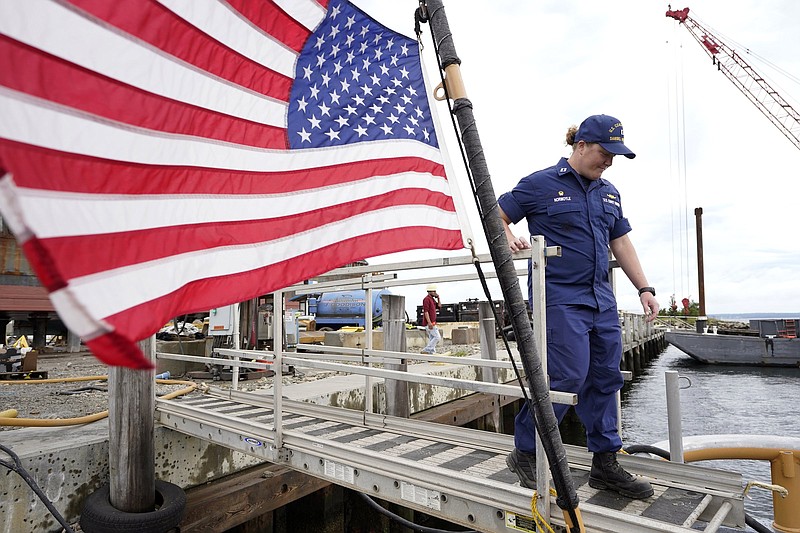NEW LONDON, Conn. -- Marking the 10th anniversary this week of the end of "don't ask, don't tell," a new generation of military academy students say that their campuses are now tolerant, welcoming and inclusive for the most part -- but that more work needs to be done.
Homophobic or ignorant comments still arise occasionally. Many transgender students still do not feel comfortable coming out. Advocates say the military needs to do more to include people with HIV, as well as nonbinary and intersex people.
Kelli Normoyle had come out as a lesbian to a few friends before she arrived at the Coast Guard Academy campus in Connecticut in 2008. But she faced a military environment where "don't ask, don't tell" was still the policy prohibiting gay people from serving openly.
She started testing the waters her second year.
"But then you always have that moment that was that kind of leap of faith," said Normoyle, now a lieutenant on the cutter Sanibel, based in Woods Hole, Mass.
Normoyle, 32, of Mount Laurel, N.J., and fellow cadet Chip Hall led the formation of the Coast Guard Academy's Spectrum Diversity Council -- the first advocacy group for LGBTQ students at a U.S. military academy -- a few months after "don't ask, don't tell" ended on Sept. 20, 2011. Similar groups later formed at the other four service academies.
The Coast Guard Academy in New London was the only U.S. military academy to hold a public event Monday to mark the 10th anniversary. About 100 people attended a dinner that included a viewing of a documentary on "don't ask, don't tell," followed by a discussion.
For many cadets, it is difficult to imagine what it was like because their generation has been more accepting, said K.C. Commins, a bisexual Coast Guard Academy senior from Altoona, Iowa, and current Spectrum Diversity Council president.
"There are so many of us now. It's hard to ignore that we're here and ... it is the new normal," Commins said.
Rear Adm. William G. Kelly, the Coast Guard Academy's superintendent, told the crowd Monday that officials have worked hard on LGBTQ inclusion and are developing a campus policy for transgender students.
Transgender people were allowed to serve openly in the military beginning in 2016, but the Trump administration largely banned them in 2019. Although President Joe Biden overturned the ban earlier this year, formal policies are still being drafted at some locations.
At the U.S. Naval Academy, sexual orientation is mostly a nonissue, said Andre Rascoe, a senior midshipman who is gay.
"In my experience, you always have the one or two people who kind of feel uncomfortable either rooming with or being on, like, a sports team with someone who's in the queer community, but they are anomalies," he said.
In its latest annual report on sexual assaults and harassment at West Point and the Air Force and Naval academies, the Defense Department reported 129 sexual assaults were reported during the 2019-20 school year, down from 149 the year before. Twelve complaints of sexual harassment were received, down from 17 the previous year.
"Obviously, there's a lot more room to grow," said Jennifer Dane, chief executive and director of the Modern Military Association of America, an LGBTQ advocacy group.
Dane, who served in the Air Force from 2010-16, said the Air Force began investigating her sexuality during her first year but dropped the probe after "don't ask, don't tell" was repealed.
"When it was repealed, ... I was finally able to be my authentic self, and it was very empowering," she said.

